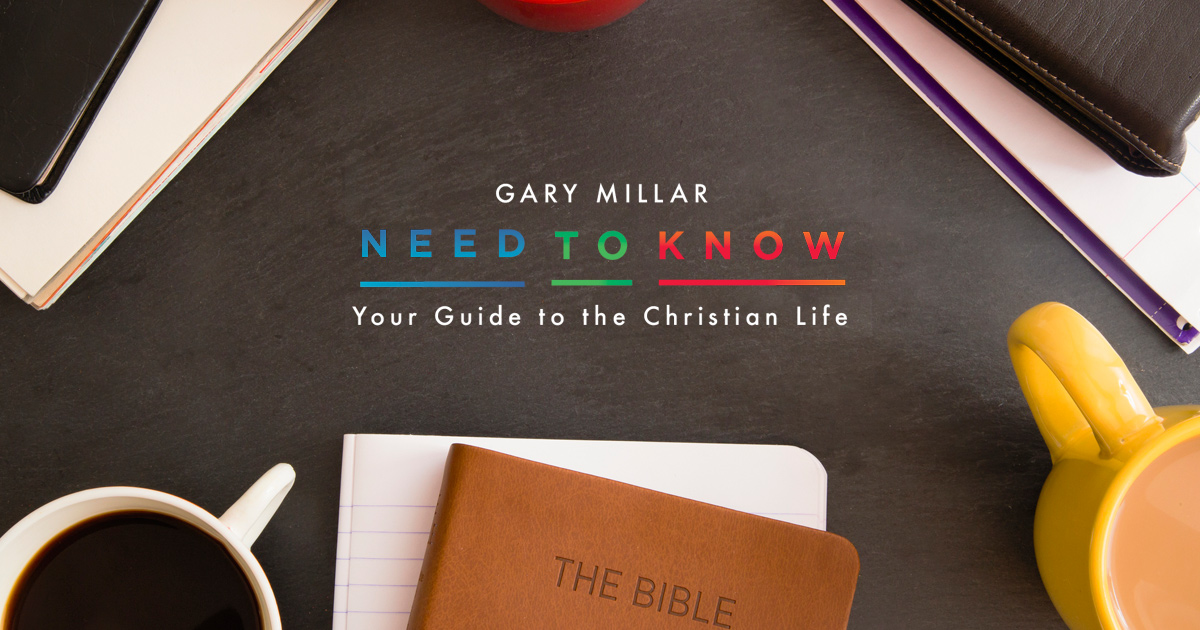
It was both a thrill and a very strange feeling to be asked to lead a group of new Christians (or “almost Christians”) through Need to Know (NTK). After years of wanting a resource to help people who have recently become Christians (or for whom the gospel had recently started to make sense and grip them), now the rubber had finally hit the road! I am part of a church right in the centre of the city, with all the opportunities and challenges that this brings. And our NTK group reflected the diversity of our city and our church – a Norwegian, two Indonesians, a South African, an Iranian, four Australians and an Irishman!
The first night was fascinating as we shared our stories. It turned out we had quite a range of experiences in the group: everything from “I’m still a Buddhist” to “I was damaged by my fundamentalist upbringing” to “I became a Christian through reading the history of the Reformation”! From the first few minutes of our first evening, I was very aware that this was going to be a really helpful test of how useful the book actually is in the diverse context that most of us live.
"Perhaps surprisingly, these theological foundations meant that even though Need to Know is basically a book about the Christian life, the focus always remained on what God has done for us through the Lord Jesus."
When writing the book, I was convinced that the place to start is with our awesome God himself – making sure that people had grasped that being a Christian isn’t, at its core, simply an intellectual commitment but is being drawn into a relationship with our awesome, Trinitarian God. To my delight, this extremely diverse group warmed to this theme right from the start. Again and again over the seven weeks we met, members of the group would bring us back to the central truth that “it isn’t just about us.”
Perhaps surprisingly, these theological foundations meant that even though NTK is basically a book about the Christian life, the focus always remained on what God has done for us through the Lord Jesus. The group saw that what we are called to do is simply a grateful and wise response to what God has done. It was also heartening to see some of the group lifted out of a slightly angsty self-focus by the truth that it is God who does all the heavy lifting in our lives.
The practical power of our union with Christ by faith seemed to give people a helpful context. It helped them to think through how God speaks to us through the Bible in a way which took us beyond the simple duties of personal Bible reading and showing up in church. If God wants us to know and enjoy him for ever, of course he’ll want to speak to us. It’s far too early to say, but I think that the group got the fact that this is the “engine” which will drive us to keep reading and listening and responding for our whole lives.
The discussion on how God changes us was probably the most animated we had, and I got the sense that people hadn’t really thought about this much. By this stage in the course, however, I did feel that everyone had grasped the flow of the book, and understood that this is what God is doing in us, and he does it as we live together as the people of God, his church. The discussion on church was also lively, as people had many random comments or questions about pet peeves. It was tempting to answer every question!
The final session on looking at the world through the gospel was interesting, in that it revealed that people in the group were in very different places. In fact, it became obvious that every person needed a personal follow-up conversation, to explore some very practical issues for them. It was at this point that one member of the group realised they are only a cultural Christian, and desperately needed to sort things out with God, and another that they need to re-examine the historical basis of Christianity. Other members of the group spoke of the encouragement of pushing deeper, or simply of having what they already knew spelled out clearly and coherently (which came as a relief to me!)
Reading through the book with these precious people was basically a reminder that God continues to do his work through the gospel – and that it is Jesus himself (through the gospel) that we all need to know!
Use Need to Know by Gary Millar in a discipleship group or mentoring sessions. Packed full of warmth and wisdom, this book will set anyone up for a lifetime of living for Jesus.